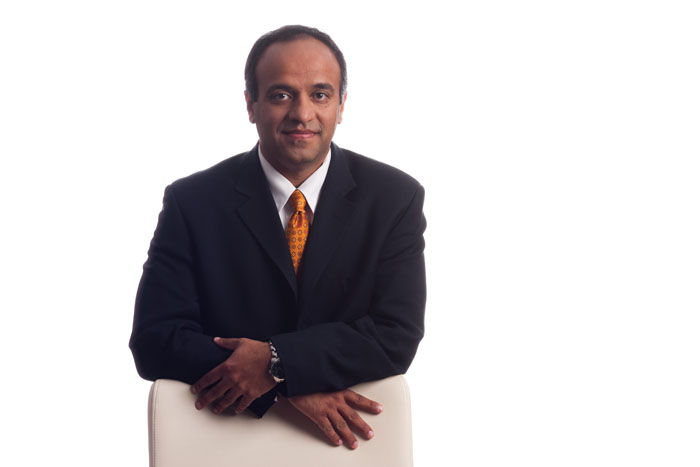
Amir Jafri, COO, West Wireless Health Institute
The West Wireless Health Institute (WWHI) announced that former Cardinal Health executive Amir Jafri has joined the Institute as its chief operating officer (COO) and former UN Foundation executive Mitul Shah has joined the WWHI as its senior director of programs and partnerships for engineering. Jafri begins immediately, while Shah will take his post on April 12.
Shah will work closely with the WWHI's Dr. Mehran Mehregany, the engineering team and the Institute’s business development staff to translate its engineering expertise, resources and capabilities into program and business opportunities. Shah previously served in a high profile wireless health position: Senior Director of Technology Partnerships for the United Nations Foundation (UNF) where he was responsible for its partnership with the Vodafone Group Foundation. The role positioned Shah as one of the thought leaders for mHealth in the developing world, in particular:
"For wireless health, the solutions themselves cut across geographies," Shah told MobiHealthNews in an interview last week, "to categorize them as for the developing world or for the developed world would be incorrect. For example, an Episurveyor in Zambia can be used in East Los Angeles or wherever, really. The bridge there is getting shorter and shorter. I hope and I think that even though my most recent work has been in the developing world and primarily emerging sector, as I join the team at West, the focus will be on the solutions themselves."
"That said, there is a lot to be learned from South to North and East to West for wireless health -- it's usually the other way around," Shah explained. "With lots of tight margins for how businesses are run in those markets versus how they are run here, it could change how healthcare business is run in the US and other Western markets. This is where I am really excited: To bring the healthcare costs down and take out the middlemen in the market."
Shah has noticed significant growth in wireless health recently:
"Five years ago at the GSM Association's event, I met with a number of wireless operators who were very interested in wireless health and understood it but weren't yet ready to get involved," Shah said. "Today -- after attending the GSMA event earlier this month -- those same people are building portfolios of wireless health offerings and each have small teams of three to four people with a mandate to bring these services to market."
Amir Jafri will head up the West Wireless Health Institute's operations and ensure that the vision of the Institute is executed each day:
"Unfortunately, in healthcare, short term profit typically does win out and at the expense of future enhancements to health services. In my opinion, that's the restriction limiting the Cardinal Healths, Carefusions and GE Healthcares from truly creating transformational technologies," Jafri told MobiHealthNews in an interview last week. "At the West Wireless Health Institute we are working to remove that restriction. That's the paradigm that this wireless health industry as a whole is working to remove. By removing that restriction, we are able to take a good, hard look at what the future of healthcare can be. We believe at West that there are a lot of ways to bring down healthcare costs and we will bring them down with next generation devices and next generation sensors -- the type of devices that used to cost $10,000 or $8,000. We will ask: How can you do the same thing for $50? We will work to make an affordable device that's as effective for the local clinic that can't afford a big machine."
For more, read this press release from the WWHI

















